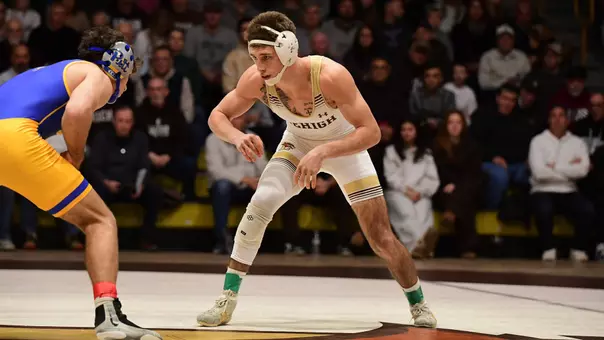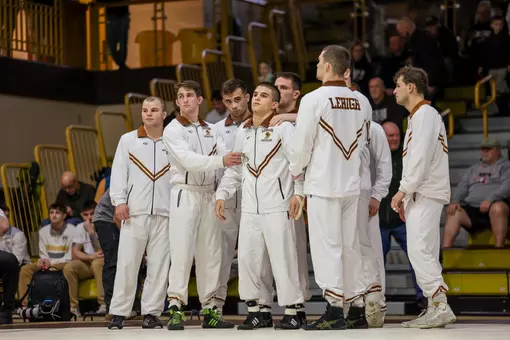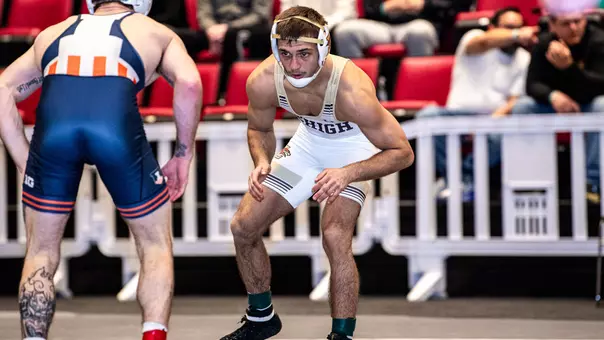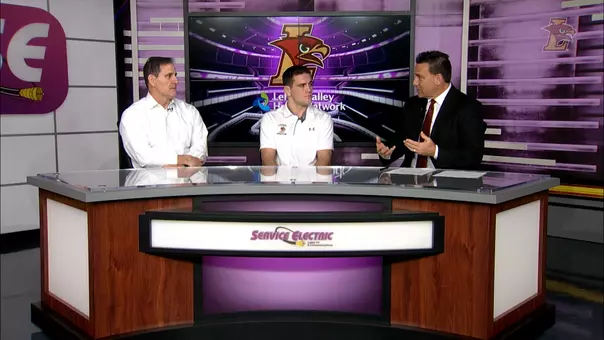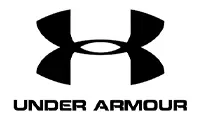Lehigh University Athletics
100 seasons of Lehigh wrestling
12/23/2008 9:15:00 AM | Men's Wrestling
 |
The 2008-09 season marks the 100th season of wrestling at Lehigh. One of the nation’s most storied wrestling programs; Lehigh holds a unique record of success that has helped the program become the premier program in Eastern college wrestling. Lehigh leads all Eastern schools with 26 individual NCAA Championships won, and ranks ninth nationally with 127 All-American medals won. Lehigh has also been the dominant program within the Eastern Intercollegiate Wrestling Association, with a league-best 193 individual EIWA championships and 34 team titles won.
Amazingly, from December 1909, when Frank Lynch started up the program, until the present day where Pat Santoro begins his first season as head coach, just eight men have held the title of Head Wrestling Coach at Lehigh University; a tribute to the great leadership that has reached unparalleled success on the mats, while grooming scholars and leaders off of it. Since 2008-09 will also be a year of transition in the nation’s White House, it’s appropriate to pay tribute to the remarkable degree of smoothness and preparation that has gone into the history of change in Lehigh’s head wrestling coach position.
“The opportunity to be the head coach of the Lehigh program in its 100th season is special to me and my family,” said Santoro, whose father (Dick ’59), uncle (Mike ‘52) and brother (Rich ’84) all wrestled for the Brown and White. “There’s a lot of respect for the history of the program and some big shoes to fill with all the great coaches that Lehigh has had throughout the years.”
Pat, of course, was not only fully familiar with the school from his childhood days, but also his nine years at Lehigh as assistant coach. In the last eight he was mentored by the man who also became his friend, Greg Strobel, who coached at Lehigh from 1995-2008.
Lehigh’s inaugural coach, Lynch, was hired after a decade of experience as a reputable professional freestyle coach in Baltimore, Maryland. Historical research suggests that Lynch may have been introduced to Lehigh through one of his former wrestlers, J.C. Gorman, a native of the area. Gorman was in the Class of 1910 and helped lead a student-appointed committee which helped found wrestling at Lehigh and also became the first team captain.
Lynch, whose name appears today on a historical marker outside Baltimore Camden Yards, served as coach for the first two seasons, and despite a modest 2-4-1 record, presided over Lehigh’s first dual meet win (3-2 over Lafayette on March 4, 1911). He turned wrestling into a major sport formally recognized by the University, with student interest listed as integral reason.
In June of 1911, Billy Sheridan was hired as head coach after one year assisting at the University of Pennsylvania, and remained for an incredible 41 seasons. The native Scotsman played an integral role in the ascension of the Lehigh program both regionally and nationally, but his role as a promoter and ambassador of the sport was equally important. In his second season, 1913, Lehigh formally became the sixth member of the EIWA and in that first year Dick Suppes and team captain Robert “Bull” Watson captured Lehigh’s first individual EIWA titles. Fourteen years later, Lehigh laid claim to its first EIWA team championship.
Wrestling attendance began to soar under Sheridan, with standing-room-only crowds commonplace in Taylor Gym after its opening in 1914. His 20th season (1931) marked Lehigh’s breakthrough on the national scene as 118-pound grappler John Engel captured the first of Lehigh’s 26 individual NCAA championships and along with Phil Shanker (third place at 165) became the University’s first All-Americans in the sport of wrestling. Three years later Ben Bishop became the Brown and White’s second NCAA champ and the first of three men to be named the Outstanding Wrestler at the NCAA Championships.
The 1931 season also marked the beginning of a string of five straight EIWA team championships for Lehigh, a streak that would be unmatched until the Mountain Hawks captured five straight team titles between 2002 and 2006.
In all, Sheridan led Lehigh to 13 EIWA team titles and coached five national champions. Equally impressive however, was the measures he went to in promoting the sport. In 1935 he created the first wrestling clinics for teaching young wrestlers and sharing knowledge with other coaches. Four years later the Lehigh team was featured in an RKO newsreel that was shown in 5,000 theatres nationwide. In 1938 Lehigh wrestled the New York Athletic Club, in the first dual meet televised on network television (WOR-TV in New York).
“Billy Sheridan was above all an innovator,” says Greg Strobel, who recently completed a 13-year run as head coach. “He was a Knute Rockne-type figure in that he was ahead of his time. He created the sport-specific camps and brought increased media coverage to wrestling. Billy Sheridan put wrestling on the map, not just at Lehigh University, but throughout the Lehigh Valley. People ask how wrestling became so popular in the Lehigh Valley. It’s because of Billy Sheridan.”
The hand-picked successor to Sheridan, Iowa native and 1948 Olympic silver medalist Gerry Leeman had impressed Billy while competing at those Trials hosted at Lehigh. “Germ” was first selected by Sheridan to become his assistant coach for the 1950-51 season. He then assumed the head coaching duties in 1953 and, over the next 18 seasons, led Lehigh to unparalleled success in balance of achievement. Leeman totaled a record of 161-38-4 in his 18 seasons and his 80.3 win percentage remains tops among all Lehigh wrestling coaches. Arriving at the all-time peak years of the EIWA, he coached six men to nine NCAA titles, beginning with Ed Eichelberger, who was the NCAA’s Outstanding Wrestler in 1955 and became Lehigh’s first two time national champ the following year.
Leeman guided perhaps the finest Lehigh team ever, the 1961-62 squad which went 12-0 in dual competition, won titles in six of nine weights to take the EIWA crown, and finished fourth in the nation. By the late 1960’s, Lehigh’s success continued and the media and soaring crowds continued to take notice. The Engineers had three national finalists in 1965, led by Mike Caruso, who captured NCAA titles in 1965, 1966 and 1967 to become Lehigh’s only three-time national champion. During that same time, the program gained national exposure as a 1965 match-up with Iowa State garnered coverage from Newsweek and Sports Illustrated. Plus the fans flocked to Grace Hall to create overflow crowds, highlighted by an arena-record 4,650 fans that saw Lehigh wrestle Navy in 1967, including closed-circuit TV upstairs. In Leeman’s final eight seasons, his teams drew an average 3,280 fans for home duals and helped set attendance figures on the road for many league rivals, including an EIWA record 7,923 at Penn State in 1967.
“I don’t think anybody had a stronger feeling for Lehigh than Coach Leeman,” said Thad Turner, who wrestled for Leeman before becoming his hand-picked successor as head coach in 1971. “Maybe it was because he came from Iowa, but he really appreciated and was interested in how things operated. He really had a great affection for Lehigh University.”
From there, the train continued to roll. Like Leeman, Turner lasted 18 years, the first 12 with the former head coach by his side as an assistant. Also like his mentor, Turner coached six men to a total of nine NCAA titles, although he outdid Leeman by winning eight EIWA team titles to Leeman’s six, and in Top Ten teams at NCAAs, 14-12. In Thad’s final nine seasons, Lehigh enjoyed 15 crowds over 4,000 in its sparkling new Stabler Arena.
Among the many highlights from the Turner Era: the 1975 team won seven of ten weight classes and scored 172.5 points to give Turner his first EIWA crown. Mike Frick won the first of two titles and captured Lehigh’s third outstanding wrestler award in the process. In 1979, two-time NCAA champion Mark Lieberman became Lehigh’s first four-time EIWA Champion, with three others (Mike Brown, Colin Kilrain and Darryl Burley following in the next five years). In 1980, Brown became the first four-time All-American in school annals, while three years later Burley became Lehigh’s lone four-time NCAA finalist, winning titles in 1979 and 1983.
“I don’t know any other place where you’d find the interest in wrestling that Lehigh has,” says Turner. “I didn’t have a difficult time motivating our men with 3000 people in Grace Hall stomping on their seats. I was fortunate to work with a lot a great young people, and for 18 years I never had a bad day.”
Also impressive, was the success of Lehigh wrestlers on the freestyle circuit. Mark Lieberman arrived with strong credentials as a junior national freestyle champ, and won a University National title early in his career. In 1979, Lieberman and Bobby Weaver won senior National Freestyle championships, and Weaver went on to place second in the world. A U.S. boycott prevented Weaver from competing in the 1980 Moscow Olympics, but four years later he earned the chance to compete in Los Angeles, and became to this date, the only Lehigh wrestler to win an Olympic gold medal.
Turner was succeeded by another hand-picked successor, Tom Hutchinson, a Lehigh All-American and assistant coach who had previously coached eventual Lehigh wrestlers to unmatched success during a decade at Blair Academy. After six seasons as Thad’s LU assistant, Hutchinson’s six teams as head coach first and foremost always faced daunting schedules – a tactic borrowed from Turner. Although Hutch’s winning percentage was not high, he guided at least one wrestler to All-American honors in five of his six seasons and directly trained on the mat with Matt Ruppel to help win a NCAA title in 1990. Ruppel owns Lehigh’s only unbeaten season since Darryl Burley’s in 1983.
The 1994-95 interim coaching successor to Hutchinson was his longtime aide at both Blair and Lehigh, Bob Latessa. Bob ably coached a senior-laden Lehigh team to its first winning season since 1986 and its first EIWA title since 1988 in his one season as interim head coach. In 1995, a national search eventually landed what looked like a total outsider when Greg Strobel arrived in Bethlehem and set the groundwork for the latest Golden Age of Lehigh wrestling. But even Strobel had several ties to the campus: he had starred in a spectacular comeback win at the East-West All-Star Classic in Grace in 1973. He’d been contacted in ’94 during the interim search. Not incidentally, he was already a Lehigh parent, with daughter Jennifer serving as team manager for the 1995 EIWA title team.
“I had been following Lehigh since the early 1970’s,” recalls Strobel. “I was always impressed how for all these years how this little private school could produce such a successful wrestling program. And I was really impressed by that noisy Grace Hall crowd in 1973!”
Strobel’s teams captured six EIWA titles in 13 years, including a dominant stretch of five in a row from 2002-2006. Nationally, Lehigh had six top-ten NCAA tournament finishes and eight straight years of multiple All-Americans. In 2002, Strobel coached his first national champion when Rob Rohn recorded the biggest comeback in NCAA finals history, overcoming a 12-point third period deficit to pin Oklahoma’s Josh Lambrecht. Two years later, Troy Letters became Strobel’s second NCAA Champion, capping off a season in which Lehigh crowned five All-Americans and finished in a tie for third at the NCAA Championships.
“Winning five straight Eastern Championships has to be near the top. It was a real feather in the cap for me,” says Strobel. “Placing all ten guys at Easterns, having backups coming in and defying the odds and placing; that was special. Having two national champions, 30 All-Americans and six top-ten NCAA finishes isn’t bad either.”
This year the transitional torch has been passed to Pat Santoro, the Bethlehem native and former Lehigh assistant, with longstanding ties to the University and the program.
“I’ve been around that wrestling room for as long as I can remember,” says Santoro. “I have very strong ties to Lehigh, with my father, uncle and brother having wrestled here. The tradition of the Lehigh program is something that was instilled in me at a young age and has always been a part of me and my family.”
